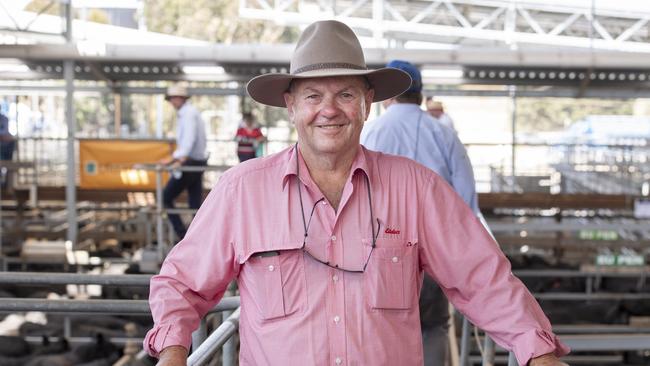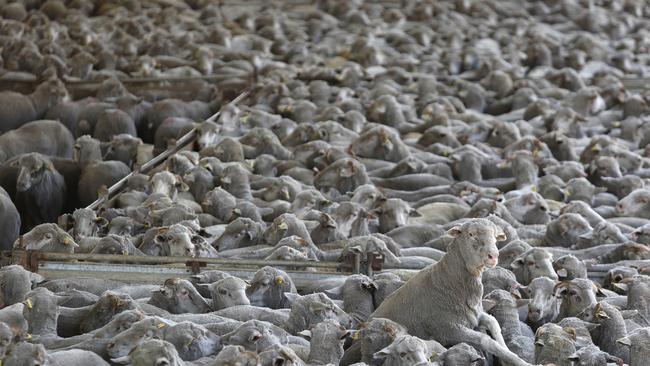ABARES: Live sheep by sea export ban not driving fallen sheep markets
ABARES says the looming phase-out of live sheep exports by sea is not causing falling sheep prices.
The link between bottomed out sheep prices and the federal government’s plans to phase out live sheep exports by sea has been quashed by the nation’s top ag research bureau.
ABARES executive director Jared Greenville told a Senate estimates hearing in Canberra on Tuesday the falling prices were more directly attributable to market oversupply following restocking over recent good seasons, rather than industry claims it was due to a looming ban on the trade.
“That is not the case, there is clearly underlying drivers in this market that we’re seeing in the east, not just in the west (where the majority of Australia’s live sheep exports by sea farmers are based),” he said.
“The live export market is still open and producers can still access that avenue to turn off sheep.”

He said producers were reacting to the “seasonal conditions in play” after the Bureau of Meteorology officially declared Australia had moved into an El Nino weather pattern while restocking rates had fallen.
“For sheepmeat, Australia is a large international exporter and so that increased supply is starting to diminish prices,” he said.
Mecardo market analyst Angus Brown backed up Dr Greenville’s comments in that the current low sheep prices were due to a range of factors.
“Which include coming out of a two to three year flock rebuild, slaughter capacity constraints which was a hangover from Covid, the forecast El Nino and a dry winter in NSW encouraged producers to turn-off stock,” Mr Brown said.
“The phasing out of live export may have an impact in Western Australia, with people quitting sheep, but it isn’t the driving factor in current prices.”

Elders national livestock manager Peter Homann said sheep prices in Western Australia were currently better than in the east, so the prices were not linked to the phasing out of live sheep exports though it was another factor to be concerned about.
However, while Australian Livestock Exporters’ Council chief executive Mark Harvey-Sutton agreed multiple factors were behind the fall in prices, he believed Dr Greenville was downplaying the impact of the proposed ban on producers.

“It is very convenient to say the phase-out policy is not having an impact on prices. But a shutdown of an industry is not going to instil confidence,” he said.
“This is particularly the case, as in livestock, where markets are confidence-driven. To so blatantly distance the ban from pricing is, to my mind, inaccurate.”
Meanwhile, an independent panel formed to advise the Albanese government on how and when the phase out should occur is due to hand its final report to Agriculture Minister Murray Watt on Thursday, after being granted a month extension.




